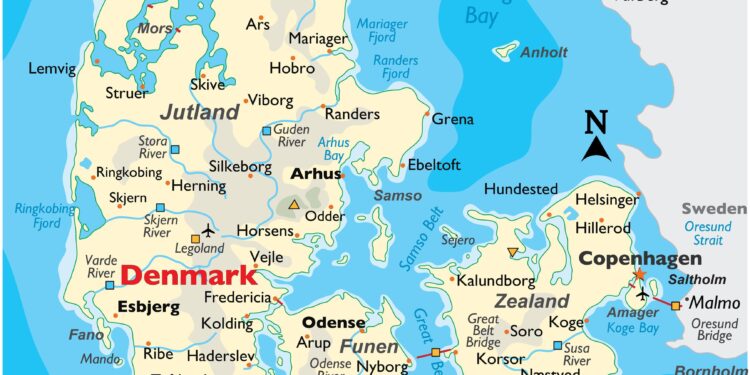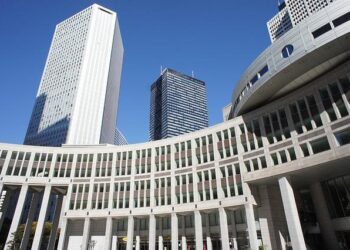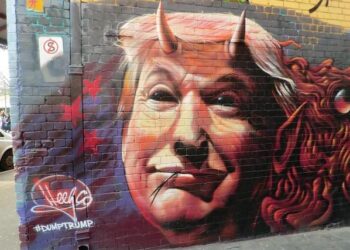Denmark’s education system is facing renewed scrutiny amid growing debates over ideological taboos in schools. As discussions around curriculum content and classroom discourse intensify, questions arise about whether students are being exposed to a balanced range of perspectives or if certain viewpoints are being suppressed. This article examines the current climate in Danish schools, exploring claims of censorship and the broader implications for freedom of expression in education.
Denmark’s Educational Landscape Under Scrutiny for Ideological Boundaries
Recent debates in Denmark have intensified around the role of schools in shaping students’ worldview, with critics arguing that certain ideological perspectives are either promoted or, conversely, suppressed within classrooms. This scrutiny raises questions about academic freedom, the neutrality of teaching materials, and the extent to which educators can freely discuss contentious societal and political topics. Parents and policymakers alike are divided, with some advocating for protective measures against perceived indoctrination, while others emphasize the importance of open dialogue and critical thinking.
Experts have identified several key areas where ideological boundaries appear most pronounced:
- Curriculum Content: Selection of history and social studies materials that might underrepresent alternative viewpoints.
- Teacher Expression: Limitations on educators expressing personal political or cultural opinions during lessons.
- Student Voice: Restrictions or encouragements regarding student-led discussions on topics like immigration, climate change, and identity politics.
| Aspect | Supporters’ View | Critics’ Concern |
|---|---|---|
| Curriculum | Ensures national values cohesion | Limits diversity of perspectives |
| Teacher Expression | Maintains professionalism | Suppresses free speech |
| Student Voice | Fosters safe learning environment | Stifles critical debate |
Exploring the Impact of Ideological Taboos on Student Discourse and Curriculum
In recent years, educators and students in Denmark have reported an increasing presence of unspoken restrictions on topics deemed sensitive or controversial. These ideological taboos appear to shape classroom conversations, limiting open debate and critical engagement. Commonly avoided subjects include immigration, religion, and national identity, which some argue are essential for a comprehensive understanding of contemporary society. Critics suggest that this environment cultivates self-censorship among students, curbing their ability to express diverse perspectives freely.
Surveys conducted across multiple schools highlight varied experiences, pointing to a clear tension between curricular guidelines and the realities of classroom dialogue. Key observations include:
- Students hesitant to voice dissenting opinions for fear of social backlash
- Teachers balancing educational objectives with sensitivity to community values
- Curriculum designers grappling with how to integrate complex issues without alienating any group
| Issue | Frequency of Avoidance | Impact on Discourse |
|---|---|---|
| Immigration | High | Restricted debate, reduced critical analysis |
| Religion | Moderate | Selective discussion, increased discomfort |
| National Identity | High | Polarized viewpoints, reduced open dialogue |
Recommendations for Fostering Open Debate and Inclusivity in Danish Classrooms
To nurture an environment where diverse perspectives thrive, educators should prioritize the creation of safe spaces for discussion, encouraging students to express their views without fear of judgment or reprisal. Facilitating structured classroom debates that emphasize respect and critical thinking can dismantle ingrained ideological taboos, empowering students to challenge assumptions constructively. Incorporating varied teaching materials representing multiple cultural, social, and political viewpoints is essential for broadening understanding and promoting empathy among learners.
Practical measures to enhance inclusivity and open dialogue might include:
- Regular teacher training on unconscious bias and inclusive pedagogical techniques
- Anonymous feedback channels allowing students to voice concerns or propose discussion topics
- Collaborative projects that integrate viewpoints from different backgrounds
- Encouragement of student-led forums to foster peer-to-peer exchange in a moderated setting
| Key Strategy | Expected Outcome |
|---|---|
| Inclusive Curriculum Design | Broadened perspective and reduced biases |
| Safe Discussion Settings | Increased student confidence in sharing views |
| Teacher Training on Inclusivity | Better handling of ideological conflicts |
| Anonymous Feedback Tools | Unbiased identification of classroom issues |
To Wrap It Up
As debates over ideological influence in education continue to unfold across Europe, Denmark’s experience underscores the complexities of balancing academic freedom with societal values. While concerns about potential taboos in schools raise important questions, the ongoing dialogue reflects a broader struggle to define the role of education in shaping critical thinking and cultural understanding. Monitoring how these discussions evolve in Denmark will offer valuable insights into the challenges and opportunities facing democratic schooling in the 21st century.
















